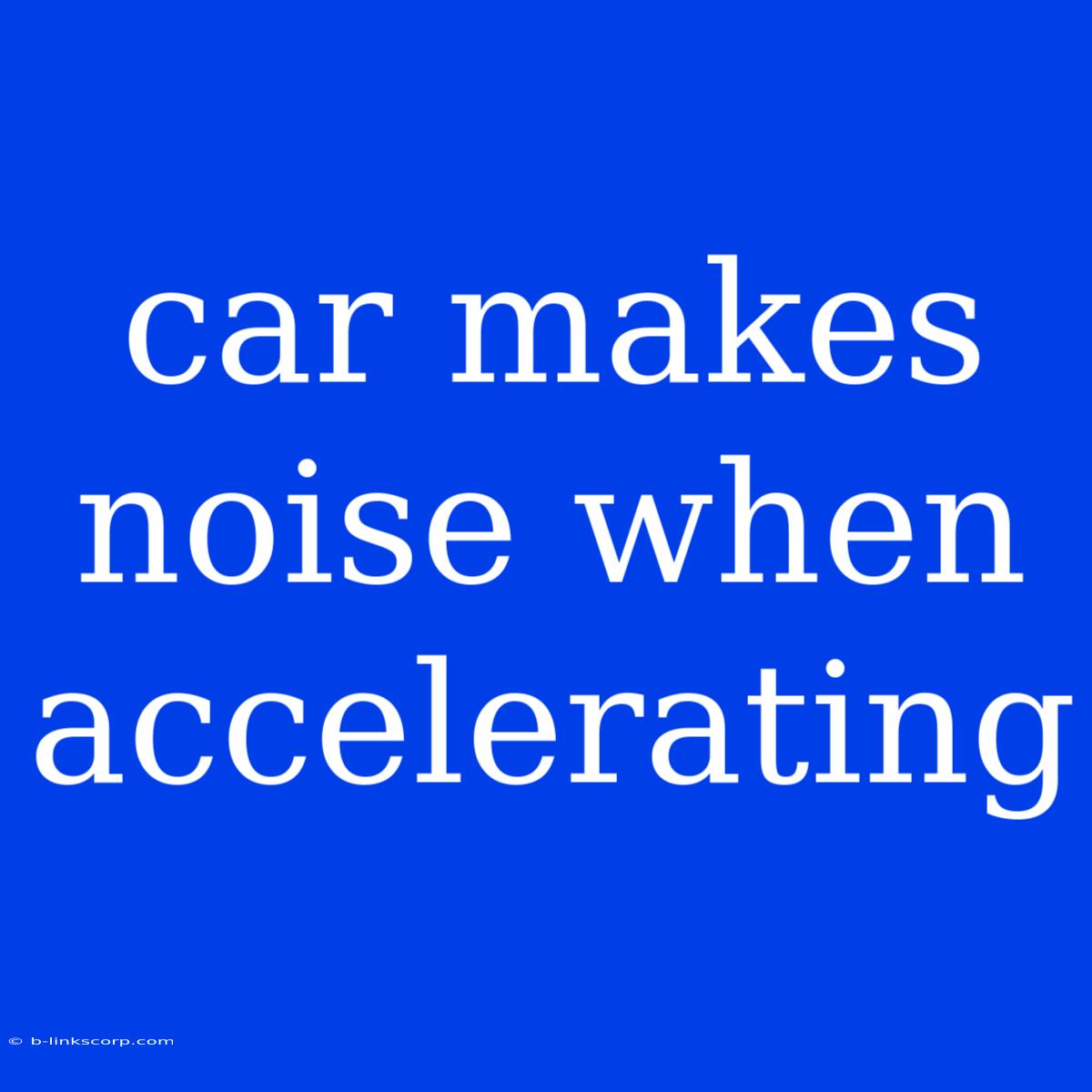Why Does My Car Make Noise When Accelerating?
It's a common and worrisome experience – you hit the gas, your car roars to life, and then... a strange noise. While a little bit of engine noise is normal, a new or unusual sound can be a sign of something more serious.
Common Causes of Noise When Accelerating:
1. Engine Problems:
- Engine Misfire: A misfire occurs when one or more cylinders in the engine fail to ignite properly. This can result in a rough idle, sputtering, and a knocking or rattling sound.
- Faulty Spark Plugs: Worn-out spark plugs can cause misfires and lead to popping, clicking, or hissing sounds.
- Bad Fuel Injectors: Clogged or faulty injectors can cause clicking, ticking, or rattling sounds, along with decreased fuel efficiency.
- Timing Belt Issues: A worn or broken timing belt can cause knocking or rattling sounds and even engine damage.
- Loose Engine Mounts: Worn-out engine mounts can cause vibrations and rattling sounds when accelerating.
2. Transmission Problems:
- Slipping Clutch: A slipping clutch in a manual transmission can lead to grinding or slipping sounds when accelerating.
- Worn Transmission Fluid: Low or dirty transmission fluid can cause whining or grinding sounds.
- Faulty Transmission Components: Worn gears, bearings, or other transmission components can produce a variety of grinding, whining, or clunking noises.
3. Exhaust System Issues:
- Leaky Exhaust Manifold: A crack in the exhaust manifold can cause hissing or popping sounds, especially when accelerating.
- Loose or Damaged Muffler: A damaged or loose muffler can create a loud rattling or roaring sound.
- Catalytic Converter Failure: A damaged catalytic converter can lead to rattling, rattling, or buzzing sounds.
4. Other Potential Causes:
- Wheel Bearings: Worn wheel bearings can produce grinding or humming sounds when accelerating, especially at higher speeds.
- Brakes: Sticking brake calipers or worn brake pads can cause squealing or grinding sounds when accelerating.
What to Do If Your Car Makes Noise When Accelerating:
- Identify the sound: Try to pinpoint where the noise is coming from. Is it a high-pitched whine, a low-pitched rumble, a clunking, or a rattling?
- Check the fluid levels: Ensure that your engine oil, transmission fluid, and coolant levels are sufficient.
- Consider a mechanic's visit: If the noise is persistent or unusual, it's best to take your car to a trusted mechanic for diagnosis and repair.
Don't ignore strange noises! Early detection and repair can help prevent more serious damage and ensure your car's safety and reliability.

